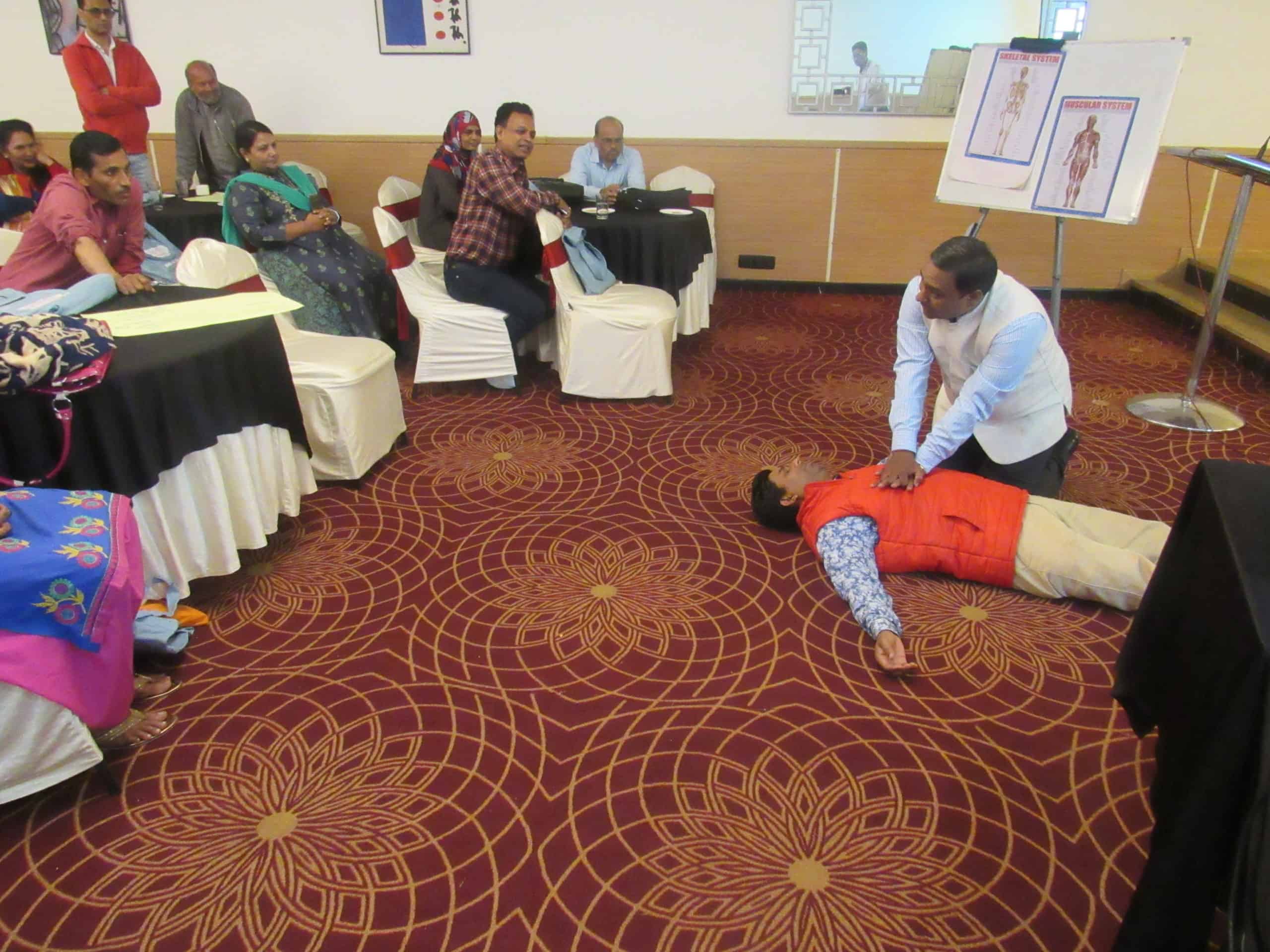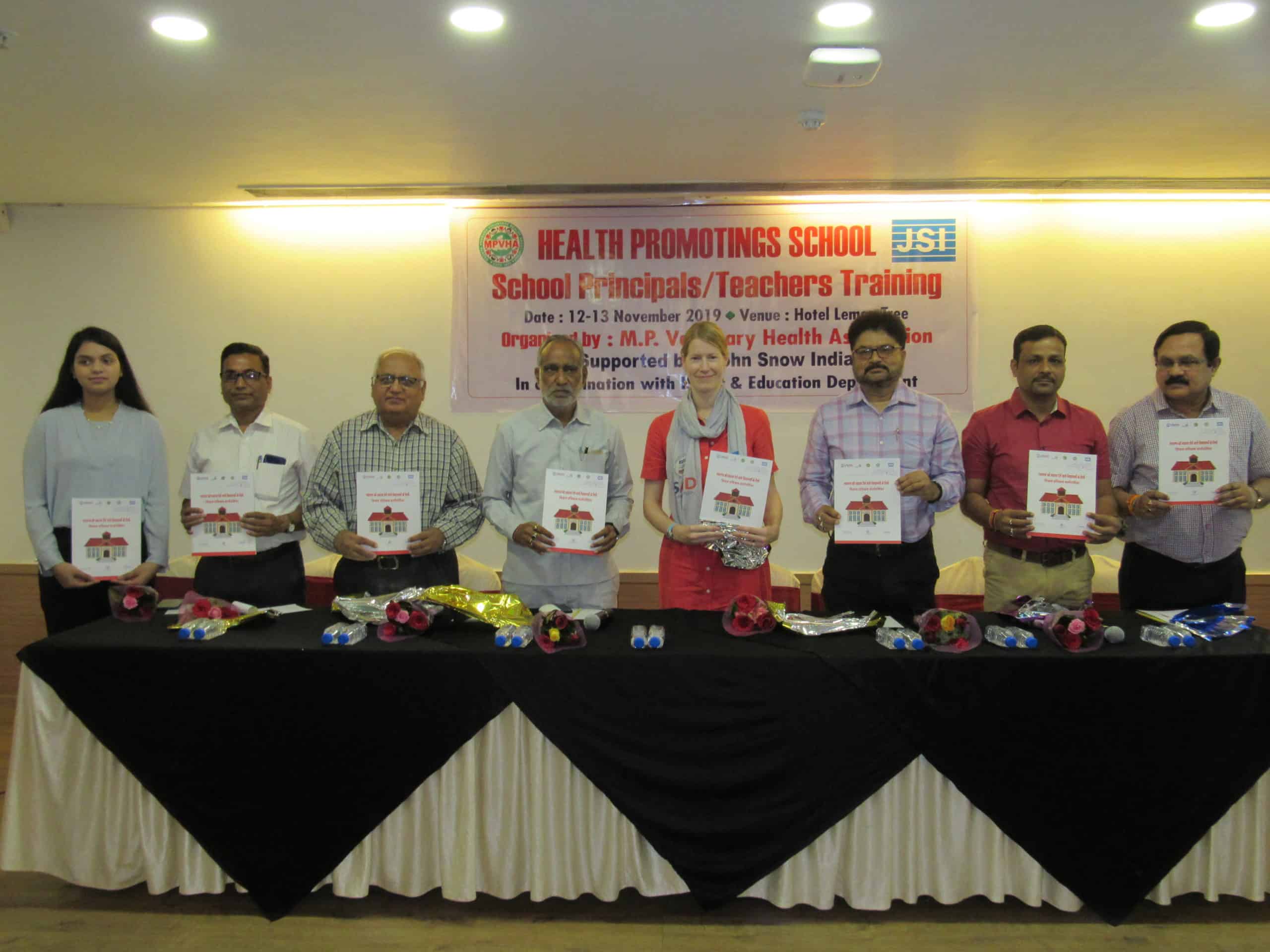Starting at School: How BHC is promoting health to youth in Indore
November 30th, 2020 | viewpoint
Young people are a precious resource but are vulnerable to a variety of factors that threaten their health and safety. As urban populations expand, cities are considering how best to reach youth. Health Promoting Schools (HPS), first advocated by the World Health Organisation, sees school as a healthy setting for living, learning, and working. In India, interest in school health has increased since 1946, when the Bhore Committee identified it as an important intervention. The National Health Mission also emphasizes school health services and adolescent-friendly health care. With this in mind, the USAID-funded Building Healthy Cities (BHC) project is providing technical assistance to help Indore Smart City Development Limited and the Education Department, with support from local organization Madhya Pradesh Voluntary Health Association, implement a comprehensive HPS program.
Indore’s HPS has three main components: training teachers as health ambassadors; promoting a healthy school environment; and multi-sectoral collaboration and convergence. Two teachers (the principal and science teacher when possible) from each school were trained by subject experts using a manual prepared by the BHC team. The manual provides age-appropriate guidelines to help students make healthy lifestyle choices through systemic interventions. Its themes include food and nutrition, personal and public hygiene, tobacco control, physical activity, mental health, environmental education, physiology, life skills, and behavior. An updated version of the manual will include social distancing, immunization, and sexual and reproductive health.
Teachers and principals described the training manual as a skeleton around which a theme is woven. Trainees were pleased to have a well-edited and designed reference kit in the local language (Hindi).
The two-day training program was conducted in six batches between November 2019 and January 2020 for 50 teachers at a time. The trainers used presentation-discussions, audio-visual aids, and group activities, in which teachers participated enthusiastically.

“Most of the teachers were very experienced and creative. They want to do many things to bring changes within the school premises for the growth of their students. But due to hectic academic schedule, unavailability of resources, and lack of opportunities, they fail to do the same. This training has provided a platform… to express themselves.” –Mr. Mukesh Kumar Sinha, executive director, MPVHA
Challenges overcome during the trainings included language barriers and difficulties talking with students about sensitive topics like mental health and menstrual hygiene. The trainers switched to Hindi as needed and delivered this content in an effective and easy manner to put teachers at ease, and the teachers welcomed the information.
“After the first day of training, one of the school principals asked to provide lifesaving skills to the students of her school, which reflects her concern toward her students. With this I conclude that with such an active and enthusiastic army of teachers, we can see the dream of Smart City come true.” -Dr Aniket Sane, subject expert, health and wellbeing

Yet no matter how well-trained teachers and students may be, schools must support healthy behaviors. Accordingly, BHC also assessed the physical and social environments of participating schools using the WHO’s guidelines and assessment tools. Findings from these assessments, conducted in late 2019, will soon be released. Schools will receive their marks related to healthy school policies; healthy physical and social environment; links with the community; competencies for healthy living; and health care and promotion services, and given related recommendations to improve in these areas. Six months after receiving their results, all schools will be evaluated on how they’ve implemented the recommended actions. Those that are in compliance will be recognized as Health Promoting Schools.
Written by Alsa Bakhtawar & Ashish Daniel
We strive to build lasting relationships to produce better health outcomes for all.